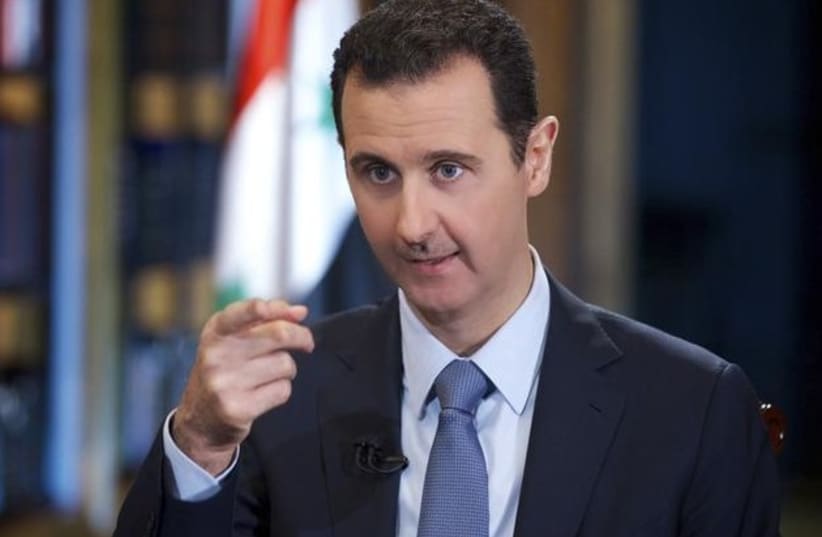For the first time since the Syrian civil war broke out in 2011, senior officials from the regime of President Bashar Assad will sit at the same table as rebels fighting for his ouster on Wednesday.The opening of the Geneva 2 conference marks the beginning of a peace effort months in the planning, and yet plagued with low expectations that any progress can be made to pause the bloodshed.Assad’s government has conflated his opposition with the terrorist cells among it, which have gained traction across Syria over the three-year war in which more than 130,000 people have died.
The Syrian National Coalition comes to the table in a position of weakness, losing its fight against Assad, against the terrorists taking advantage of its struggle and against a fast-diminishing supply of goods and ammunition.Opposition leaders nearly pulled out of the conference just two days before it was set to begin, after United Nations Secretary- General Ban Ki-moon invited Iran, a key ally of Assad, to participate.The invitation drew sharp criticism from the United States, which demanded Ban rescind it or risk jeopardizing the conference.Ban withdrew the invitation less than 24 hours after extending it, citing Iran’s decision not to publicly endorse the Geneva communiqué – a diplomatic document from 2012 that calls for a transitional government in Syria, and recognizes the opposition to Assad.Iranian officials said that accepting such a precondition would amount to endorsing terrorism.At a news conference in Moscow on Tuesday, Russian Foreign Minister Sergei Lavrov said Ban had made a mistake in withdrawing the invitation.Lavrov said the Syrian opposition had in effect held the peace conference ransom by saying it would not attend if Tehran was invited, and suggested the confusion had done nothing to boost the standing of the United Nations.“It is, of course, a mistake... But it isn’t a catastrophe,” Lavrov said. “The absence of Iran will not contribute to efforts to ensure the unity of the Muslim world, including in fighting terrorism, which is a threat to all of us and all Muslims as well.”Lavrov was to meet with US Secretary of State John Kerry on Tuesday night. The two men also met with the UN secretary-general, as well with as other leaders in attendance, before the official start of the conference.A spokesman for the secretary- general maintained the party line on Tuesday, saying Ban was “disappointed” in the Iranian government’s refusal to accept the conditions for attending the Geneva 2 conference.He did not respond allegations that Ban was under pressure from the US delegation to withdraw the invitation.“The secretary-general has been in touch with the US and other parties, but was in touch with them consistently throughout the days prior to Sunday’s announcement,” spokesman Farhan Haq told reporters. “He continues to do as much as he can to make sure that as many parties as possible are on board [with the Geneva communiqué].This is the first real diplomatic opportunity to get the parties to the table, and we need to make the most of it. All the countries of the region with influence need to exert their influence to ensure that we have a peace process to stop the fighting.”Haq maintained that accepting the Geneva 1 communiqué was the absolute minimum for countries to participate, even though many countries might be coming to the table with different views on how to solve the conflict.“The communiqué is the basis for these discussions. It doesn’t really make sense to have someone participate in these discussions if they’re doing it without understanding what the basis of the discussions are,” he said.“Although various parties come in with different understandings of the situation, different understandings of who to support and why, what we are doing is relying on them is to act and negotiate in good faith that what they will do is try to make operational the points that came out in the Geneva communiqué.”The reason the invitation to Iran was withdrawn, Haq said, and that he did not wait for written confirmation from Tehran that it would accept the conditions, was that Ban believed “he had been given to understand that there was an oral understanding in place with Iranians, that would be more concrete. That did not happen, in fact the opposite is what happened.”Haq said the UN was aware of the media reports about the use of torture by the Syrian regime, and that the UN needed to study the photos further before releasing a statement. “We’ve been concerned about this for a number of years. The secretary-general has spoken against it, UN high commissioner for human rights Navi Pillay has spoken against it, and we continue to be concerned.”Calling the ongoing violence a “horrible tragedy” marked by “widespread and apparently systematic violations” of international law by the Assad regime, State Department spokeswoman Marie Harf said that the conflict “isn’t a US government issue to solve, per se.”She noted, however, the significance of the two sides of the conflict sitting at the table for the first time, as a “step in the right direction” if not an end unto itself.Reuters contributed to this report.Assad regime, Syrian rebels begin talking peace at Geneva summit
Peace effort is plagued with low expectations that any progress can be made to pause the bloodshed.
